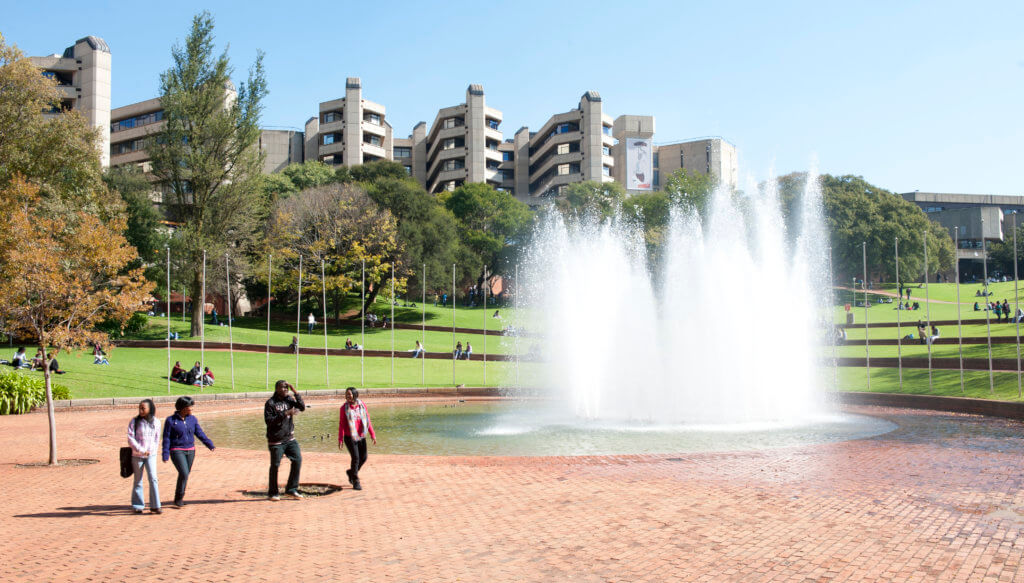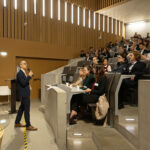
The study of politics and international relations is for people who want to understand and influence what is happening in the world — at either a local, regional, national or international level. The climate crisis; biodiversity and habitat loss; COVID-19 pandemic; rise of populism; and ageing populations — these are just some of the challenges we face as we begin the 2020s.
A qualification in Politics and International Relations is a great starting point for those who want to play a role in shaping how governments approach these crucial global issues. It explores the world in which we live by considering how the decisions we make collectively affect the culture, society and economy of the world as a whole, including an in-depth look at how various political actors including governments and international institutions influence our world.
How do relationships between nations shape our world? Who holds how much power? What are the political processes that impact our day-to-day lives? These are some questions that will be explored by studying the core areas of politics and international relations at the institutions below:
University of Johannesburg – Department of Politics and International Relations
With a world-class faculty, an active and engaging campus community, diverse opportunities and areas of research, the University of Johannesburg (UJ) is in a league of its own. UJ’s Faculty of Humanities is ranked among the top 400 universities worldwide, according to the Times Higher Education (THE) World University Rankings. Academic distinction; integrity and respect for diversity and human dignity; academic freedom and accountability; individuality and collective effort; and the creation and dissemination of new knowledge — these are some of the values that the faculty holds close to heart.

Source: University of Johannesburg – Faculty of Humanities
The University’s Department of Politics and International Relations is part of this prolific faculty. It aims to advance critical and professional scholarship in politics and international relations through research, teaching and community service.
Programmes are offered in both undergraduate and postgraduate levels. Here, at undergraduate level, you can combine the following modules with your major: Anthropology; Classical Culture and Mythologies; Communication and Media; Geography; Sociology; History; Development Studies; Languages; Language Practice; Linguistics; Marketing Management; Public Management and Governance; Philosophy; Economics; Strategic Communication; Industrial Psychology and Psychology. At postgraduate level, you will be supervised by experts in a wide range of fields, all with the underlying aims of contributing to academic literature and improving the human condition.
With a postgraduate degree from UJ, you’ll be ready to forge a career in the diplomatic service, think tanks, consultancy, banking, multinationals, the World Bank, the UN and other regional and international organisations. “The help of the dedicated lecturers in the department, as well as the one-on-one consultations, made a huge difference. The support UJ provided through the Academic Development Centre, for academic assistance with writing techniques and other necessary tools for studies, was pivotal,” says alumnus Mosima Letsoalo.
Princeton University
Princeton University is located in the bustling heart of New Jersey. The Princeton School of Public and International Affairs specialises in training students to handle political and government decision-making processes, emphasising on diverse scholarly perspectives and evidence-based analysis.

Source: Shutterstock
The school conducts path-breaking research, producing analysis that contributes to important and topical debates. Be it an interest in public policy or economic governance, there’s a career-advancing programme for everyone, such as the Master in Public Affairs; Master in Public Policy; and PhD in Public Affairs.
The Bendheim-Thoman Centre for Research on Child Wellbeing (CRCW), Centre for the Study of Democratic Politics (CSDP) and Centre for International Security Studies are some centres dedicated to research in their respective subject fields. There are more than 300 student organisations created and run by students, ranging from music and dance to politics and debate, from service and social activities to cultural and educational interests.
“An international experience at Princeton is an opportunity not to be passed up. Princeton has many choices to offer with total academic and financial support. Princeton will help you and prepare you for the most meaningful experience, and you will come back to campus changed for the better,” shares student Leah Mildred Smith.
London School of Economics
Ranked second in the UK and first in London in the QS World University Ranking by Subject 2020 for Politics and International Studies, the Department of International Relations at London School of Economics is one of the world’s leading social science institutions.

Source: Shutterstock
International Relations has been taught at LSE since 1924. Today, the Department runs a three-year undergraduate programme; an undergraduate General Course programme; five MSc programmes and a research programme for MPhil/PhD students.
LSE graduates have found employment in 121 countries worldwide. The “LSE advantage” lies in the various centres, units and externally-funded research projects associated with the department: Centre for International Studies; European Foreign Policy unit; Global South unit; IDEAS – Diplomacy and Strategy@LSE; Middle East centre; United States centre; Saw Swee Hock Southeast Asia centre; International trade policy unit; and LSE Centre for Women, Peace and Security
“My course experience has opened my eyes to a variety of issues affecting countries on a global and international level. I have truly enjoyed expanding my cultural understanding here at LSE,” says student Madalyn Kranz.
Sciences Po
“PSIA excels at bridging the gap between theory and practice. In my experience, this is ideal for future leaders who aim to thrive as innovative and responsible actors in a challenging global world” shares Enrico Letta, Dean of the Paris School of International Affairs (PSIA) and former Prime Minister of Italy.

Source: Shutterstock
Part of Sciences Po, the PSIA was established in 2010, with a goal to train and shape global actors to understand and respond to the complexities of the world. PSIA has a population of 1,500 students representing over 110 countries — 70% of courses are taught in English.
To cultivate the minds of future government officials, diplomats, and key international stakeholders worldwide, the school’s curriculum combines conceptual foundations and current scholarship, with the most up-to-date operational training and best practices.
The school offers master’s programmes in a variety of international affairs fields; Master in Advanced Global Studies; International and National Dual Degrees; and Fundamental Courses.
“PSIA provided me with an environment to make many great connections that I cherish and still stay in touch with,” alumnus Francis Effion says. “Studying in France for the first time and mazing through the cultural and linguistic barriers wouldn’t have been easy without course mates to cheer and challenge you.”
*Some of the institutions featured in this article are commercial partners of Study International










